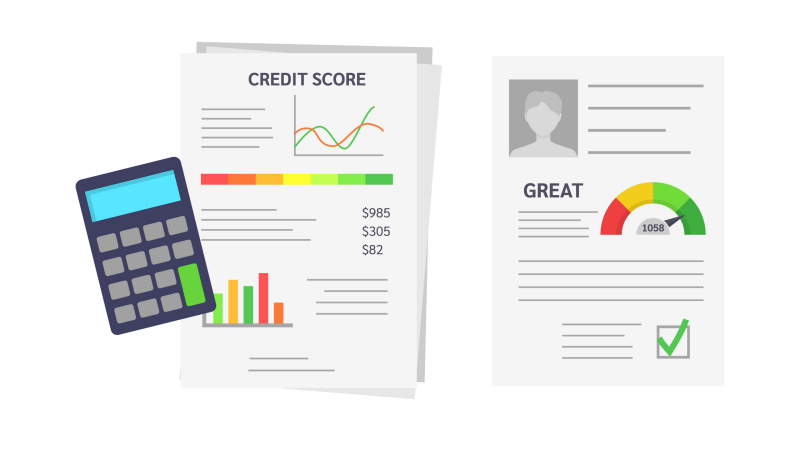Why is it important to regularly check your credit report?

Quick insights
- Your credit report is a helpful document that provides important information, including payment history, credit limits and types of accounts.
- It’s important to check this report regularly, in part to keep track of accurate reporting of payments, but also to help keep your credit score healthy.
- Monitoring your credit report can allow you to take preventative measures and other actions to ensure the information remains correct.
In this article, you will learn about:
- Monitoring fraudulent activity
- Identifying and disputing errors
- Uncovering ways of improving your credit
- When you should be checking your credit report
Monitoring fraudulent activity
Checking your credit report regularly allows you to be aware of activity that seems suspicious or potentially fraudulent. Be sure to look out for any information that stands out. This could be accounts you don’t remember opening, payments you didn’t make and more. Catching these errors allows you to address the issue as soon as possible, given that these items could be hurting your credit score.
When you enroll in Chase Credit Journey®, a free online tool, you can utilize identity monitoring alerts to help keep you abreast of suspicious changes or activity in regard to sensitive information.
Identifying and disputing errors
If you find inaccurate information, it can be essential to contact the bureaus from which you received your report—either Experian™, Equifax® or TransUnion®. You can contact them over the phone or online and address information that may need to be removed, such as inaccurate derogatory marks. Doing so can help protect your credit score.
Additionally, if you come across inaccuracies such as derogatory marks that don’t pertain to you, you will want to contact the bureau where your report came from as well to remove this inaccurate information. Doing so can help protect your credit score. Keep in mind that inaccurate information on your credit report is rare, so you may not be filing claims often.
If there’s fraudulent activity, you should also contact your lender as soon as possible to avoid future potential consequences. You can freeze your accounts or request a new card if you find that someone has been using your information.
Uncovering ways of improving your credit
You may improve your credit score by taking small but important steps. For example, when you enroll in Credit Journey®, you may receive a free, personalized action plan provided by Experian. This plan highlights actionable steps you can take today to improve your credit score over time.
Some ways you may be able to improve your credit include:
- Building up your payment history, which is a major factor that contributes to your score
- Lowering your credit utilization ratio to about 30% or lower
- Adjusting your debt-to-income ratio to help pay down your balances
When should you be checking your credit report?
At the bare minimum, it’s important to review your credit reports annually. Doing so allows you to look for any inaccuracies and to help monitor your credit. You might want to check it more frequently if you’re planning to make a large purchase or other major financial decision. These are moments where having good credit can help.
You are entitled to get one free credit report from each of the three main credit bureaus every 12 months. However, requesting more than one report could cost you money and potentially hurt your credit score.
Instead, you can get a credit report from Experian when you enroll in Credit Journey®. You can check your score and report as much as you’d like using this online tool without worrying about hurting your score.
In summary
Checking your credit report can be a helpful way of tracking your finances and protecting your credit score. By monitoring your credit report regularly, you can ensure that your financial choices are accurately represented and ensure your score remains healthy.



